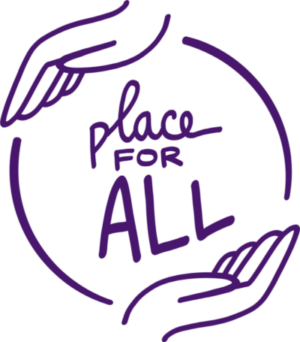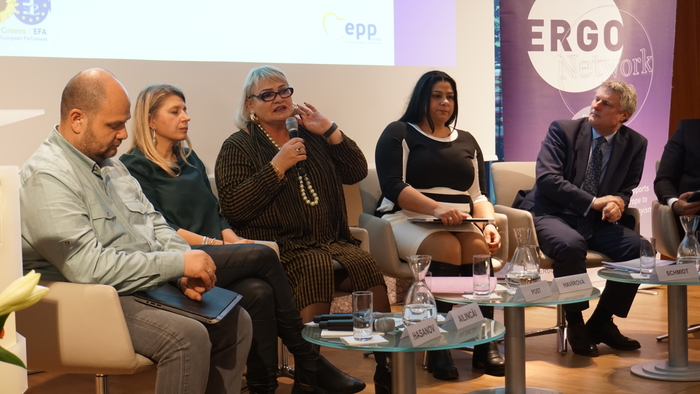A Place for All – ERGO Network’s employment campaign
ERGO Network is launching its new campaign ‘A Place for All’, shedding light on the important role that employers play in supporting the employment of Roma and other ethnic minorities, as well as on the benefits that an inclusive workforce.
Roma employment – it should be obvious – is important for Roma themselves, for the employers and for society as a whole.

- Improving Roma access to quality employment breaks the cycle of poverty, discrimination and exclusion and gives people back their dignity.
- Getting more Roma into employment helps counter widespread stereotypes based on antigypsyism.
- Having more employed Roma creates positive role models for the inclusion of Roma communities.
- A diverse workforce increases emotional intelligence, creativity and productivity in any workplace.
- A diverse workforce builds trust with minority customers and service users.
- Hiring more Roma is a smart economic choice, improving growth and combatting demographic change.

Through the Place for All campaign, ERGO Network will therefore raise employers’ awareness of the benefits of an inclusive and diverse workplace as well as of the motivation and competencies of young Roma. It will also highlight employers’ good practices in diversity and inclusion and encourage others to follow their example.
How will the campaign work?
The main focus of the campaign will be on employers who have been approved by ERGO Network members as inclusive employers and who sign the Place for All pledge, reaffirming their commitment to making their workplace a place for all. These employers will be awarded a badge and will be promoted by the ERGO Network. This will include sharing of their good practices, providing further support and generally giving them visibility. In the future, once a group of employers in several countries has been awarded the badge, ERGO Network members can furthermore organize peer learning, networking and exchanges between these employers.
To not only highlight employers, but also Roma employees who overcame the huge hurdle of antigypsyism – manifesting itself in poverty, lack of education and discrimination by employers – we will at the same time feature inspiring stories of Roma employees from different countries.
Follow the campaign on its Facebook page and ERGO Network’s social media accounts to get to know the first awarded employers and inspiring stories!
Do you know an employer who fits our profile? Contact info@ergonetwork.org or ask them to sign up for the badge directly on our website: www.ergonetwork.org/employment.
The campaign has been made possible thanks to the financial support of the European Commission’s EaSI Programme.








 This conference was kindly supported by a grant from the Foreign Office of the Federal Republic of Germany.
This conference was kindly supported by a grant from the Foreign Office of the Federal Republic of Germany. ERGO Network receives financial support from the European Union Programme for Employment and Social Innovation EaSI (2014-2020). For further information please consult: http://ec.europa.eu/social/easi
ERGO Network receives financial support from the European Union Programme for Employment and Social Innovation EaSI (2014-2020). For further information please consult: http://ec.europa.eu/social/easi